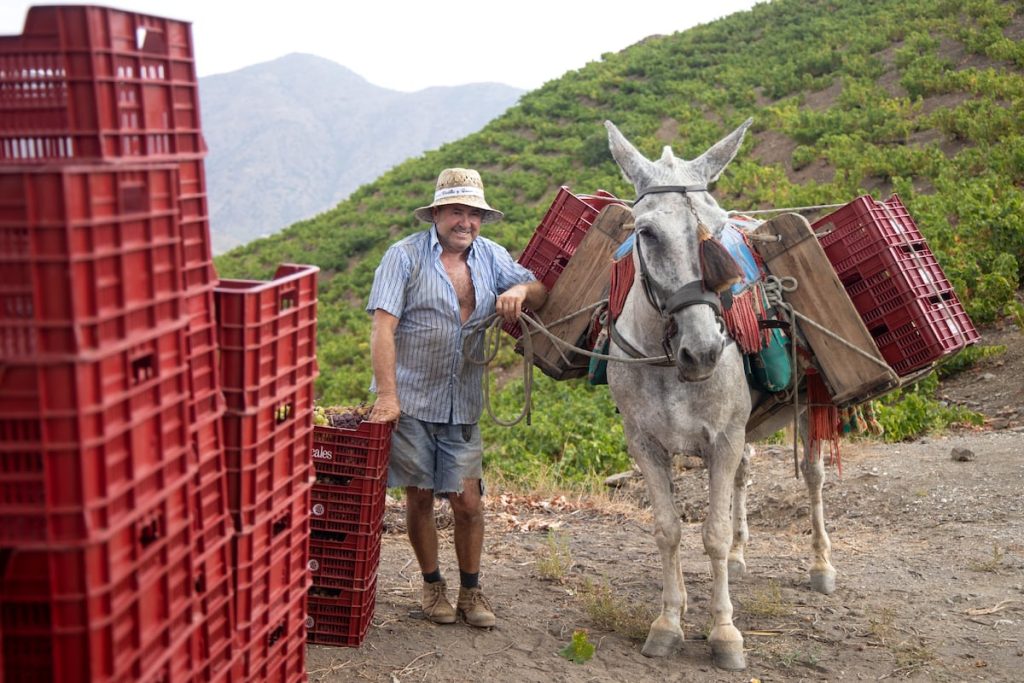In the mountains of Almáchar, Málaga, a unique bond between humans and animals is on display during the backbreaking work of the grape harvest. Bernardo Villalba, 59, and Cubero, a 12-year-old mule, navigate steep terrain to transport boxes of grapes up and down the vineyard. This grueling task, known as heroic viticulture, takes place in the rugged landscape of the Axarquía region, where traditional farming methods using animals are still prevalent. Despite the challenges, the arriero and his mule tackle the work with determination and a smile, showcasing the resilience and strength required for this demanding job.
The Axarquía region is home to a rich viticultural tradition, with a history of producing some of the world’s most expensive wines before the arrival of the phylloxera pest. Today, the area is known for its unique grape varieties, including moscatel and romé, cultivated by small family-owned wineries like Viñedos Verticales and Dimobe. The steep and rugged terrain of the vineyards presents a challenge for modern machinery, making the use of animals like mules essential for the grape harvest and other agricultural tasks. The traditional methods preserved in the region have been recognized by the FAO for their cultural significance and sustainability.
For the farmers and arrieros of Almáchar, working with animals is a way of life that transcends generations. Bernardo Villalba, who started working the land at a young age, considers the mules his family and partners in the vineyard. The intimate connection between humans and animals is evident in the daily routines of vineyard work, where each member of the family plays a vital role in the success of the harvest. The physical demands of the work are matched by the emotional attachment that farmers develop towards their animals, reflecting a deep-rooted respect for nature and tradition.
In a rapidly changing world, the use of animals in viticulture is facing challenges as modern technology and machinery become more prevalent. While some farmers see the practicality of using mechanical tools for tasks like grape harvesting, others like Fabio Coullet and Lauren Rosillo believe in preserving the traditional methods that have sustained their families and communities for generations. The reliance on mules in the Axarquía is not just a romantic gesture but a practical necessity in a landscape where machinery struggles to navigate the rugged terrain.
Despite the hardships and uncertainties of the grape harvest, there is a sense of optimism among the winemakers and farmers in the Axarquía region for the upcoming year. After two difficult years, the 2024 harvest promises to be a successful one, with favorable weather conditions and strong grape yields. The resilience of the land and the dedication of the people who work it are evident in the careful tending of the vineyards and the celebration of each harvest as a triumph over adversity. As the mules continue to play a crucial role in the vineyards, their presence serves as a reminder of the enduring connection between humans, animals, and the land they call home.


